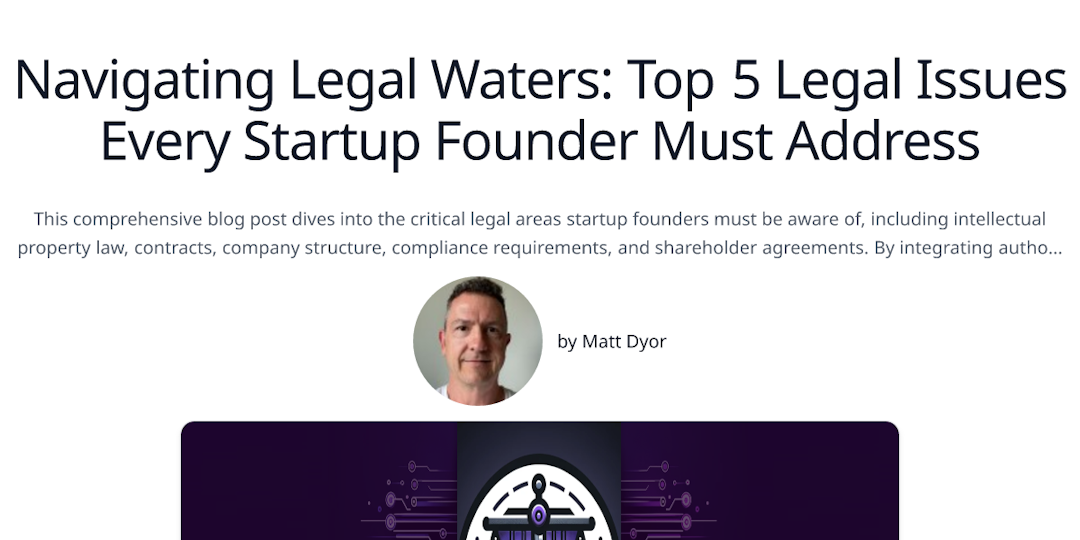In the innovative world of startups, particularly those in the technology and computer science sectors, the contribution of bright, eager undergraduate students can be invaluable. However, the legal landscape surrounding unpaid internships is complex, necessitating a clear understanding of the laws to avoid legal pitfalls. This post is designed to shed light on the critical legal considerations startups must weigh before bringing an unpaid intern on board, especially from a computer science undergraduate program.
Legal Framework Governing Unpaid Internships
At the heart of the discussion about unpaid internships are the Fair Labor Standards Act (FLSA) guidelines, which set the criteria under which an individual can be classified as an unpaid intern rather than an employee who must be paid at least the minimum wage. The U.S. Department of Labor’s Wage and Hour Division provides specific criteria for determining internship status under the FLSA, detailed in their Fact Sheet #71: Internship Programs Under The Fair Labor Standards Act at https://www.dol.gov/agencies/whd/fact-sheets/71-flsa-internship ↗. These criteria focus on the educational benefits to the intern, the relationship between the intern’s work and their coursework, and the intern’s entitlement to a paid job at the conclusion of the internship.
Intellectual Property Considerations
For startups, particularly in sectors as dynamic and invention-rich as computer science and technology, understanding and navigating intellectual property law is crucial. When engaging an intern in projects that could lead to the development of patentable technologies or copyrightable software, clear agreements outlining the ownership of any created intellectual property are a must. The United World Intellectual Property Organization offers guidance on copyrights, patents, and trademarks that can guide these discussions at WIPO Intellectual Property Handbook at http://www.wipo.int/portal/en/index.html ↗.
Creating a Compliant Internship Program
To ensure that your startup's internship program complies with legal standards while remaining beneficial to both the company and the unpaid intern, consider the following steps:
-
Educational Focus: The internship should provide the intern with skills and knowledge applicable to their academic program. Partnerships with educational institutions can further legitimize the educational nature of the program.
-
Documentation and Agreements: Clear, written agreements should detail the nature of the work, the educational benefits, the duration of the internship, and the absence of wages. Additionally, any agreements pertaining to intellectual property rights should be explicitly outlined and agreed upon before the commencement of the internship.
-
Supervision and Evaluation: Providing interns with appropriate supervision and regular performance evaluations can demonstrate the educational intent and structure of the program, further distinguishing it from regular employment.
-
Compliance with Local Laws: Beyond federal regulations, be aware of any state-specific laws governing internships. Some states have stricter requirements for what constitutes an unpaid internship.
Frequently Asked Questions
-
Can my startup engage an unpaid computer science undergraduate student as an unpaid intern? Yes, provided your internship program meets the criteria set out by the FLSA and any applicable state laws, focusing on the educational benefit to the intern and ensuring the experience is not a substitute for paid employment.
-
How can we ensure our intellectual property remains protected when engaging unpaid interns? Draft clear, comprehensive agreements detailing intellectual property ownership, ideally with the guidance of legal counsel specializing in intellectual-based law for startups.
Conclusion
The engagement of unpaid interns in a startup, especially within the realms of computer science and technology, can offer substantial mutual benefits if approached correctly. Adhering to the legal regulations and best practices outlined above is essential to ensure a beneficial and compliant program. Startups should consider consulting with an intellectual property law attorney to navigate these waters safely.
For further inquiries or to continue this conversation, feel free to use the "Ask a Question" button at the top of the page, or reach out via the contact button atop this post.
Main Keyword: Unpaid Internships
Meta Description: Explore the legal guidelines for engaging unpaid computer science undergraduate students as interns within your startup, focusing on intellectual property law and compliance.
Tags: Unpaid Internships, Intellectual Property Law, Startups, Computer Science Internships, FLSA Compliance, Internship Agreements, Copyright Law, Patent Law.






















